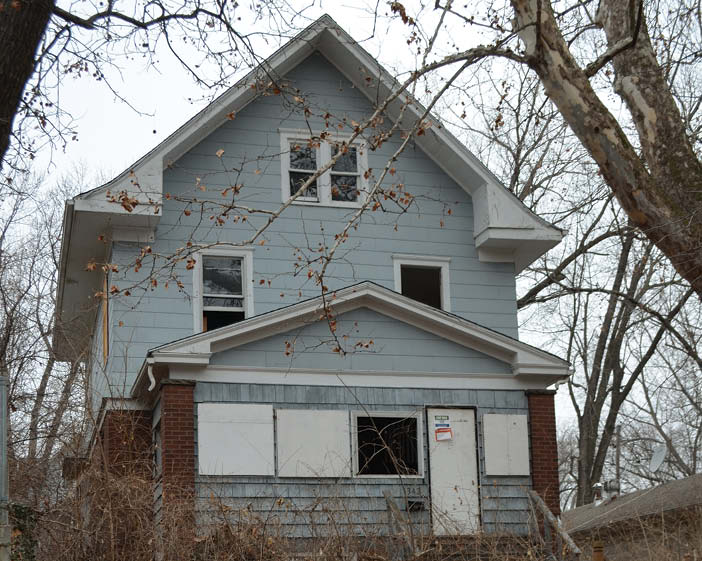
By Joe Jarosz
Northeast News
February 11, 2015
KANSAS CITY, Missouri — It’s good to get an update on partnerships from time to time. Especially when your partner is dealing with an issue that’s affecting not just the Northeast and the city’s urban core, but the city as a whole.
At last week’s Neighborhood, Housing and Healthy Communities Committee meeting, committee members heard a presentation on the partnership between the city and Legal Aid regarding abandoned properties. Gregg Lombardi, executive director of the Legal Aid of Western Missouri, said they handle between roughly 60 and 80 cases a year with good results. Currently, there are over 7,000 abandoned properties in the urban core of Kansas City. For more than 20 years, the city and Legal Aid have been working together.
With time and experience, Lombardi said they’ve learned good lessons on how to address the issue effectively. First, they want to find pivotal properties to rehabilitate.
“We work closely with the Neighborhood and Housing Services Department, neighborhood associations and individual property owners to identify the properties that, if rehabbed, would make the biggest difference to the community,” Lombardi said.
Legal Aid is then able to acquire those properties under the Missouri Abandoned Housing Act — which permits courts, upon petition, to transfer ownership of vacant, neglected, tax-delinquent properties to nonprofit organizations for rehabilitation.
“Working closely with private, for-profit developers who have a proven track record of rehabbing urban core properties and doing a good job of it while making sure those properties get turned into high quality, livable spaces is one way to make this sustainably work,” Lombardi said. “Taking that approach, we’ve found we can make critical improvements in the neighborhood.”
Lombardi also pointed out that houses that were once used for prostitution, drug use or by squatters are then turned into “lived-in, good quality tax-paying” property for the city. Through the results of the properties they handle, he added they’re seeing good results and slowly diminishing the city’s 7,000 plus abandoned properties and turning around the urban core of Kansas City.
During the presentation, Lombardi explained Legal Aid isn’t involved in the redevelopment of the sites. Under the abandoned housing act, acquisition usually takes about six to 10 months. Even though Legal Aid handles almost 80 cases a year, Michael Duffy, managing attorney, said half of those are settled with the property owner or the owner fixes the property themselves. During the process, a number of court orders are required to get a judge to declare the property abandoned. The judge then writes the deed over to Legal Aid’s client, which is usually a neighborhood association, who then partners with a rehabber to fix up the property.



















